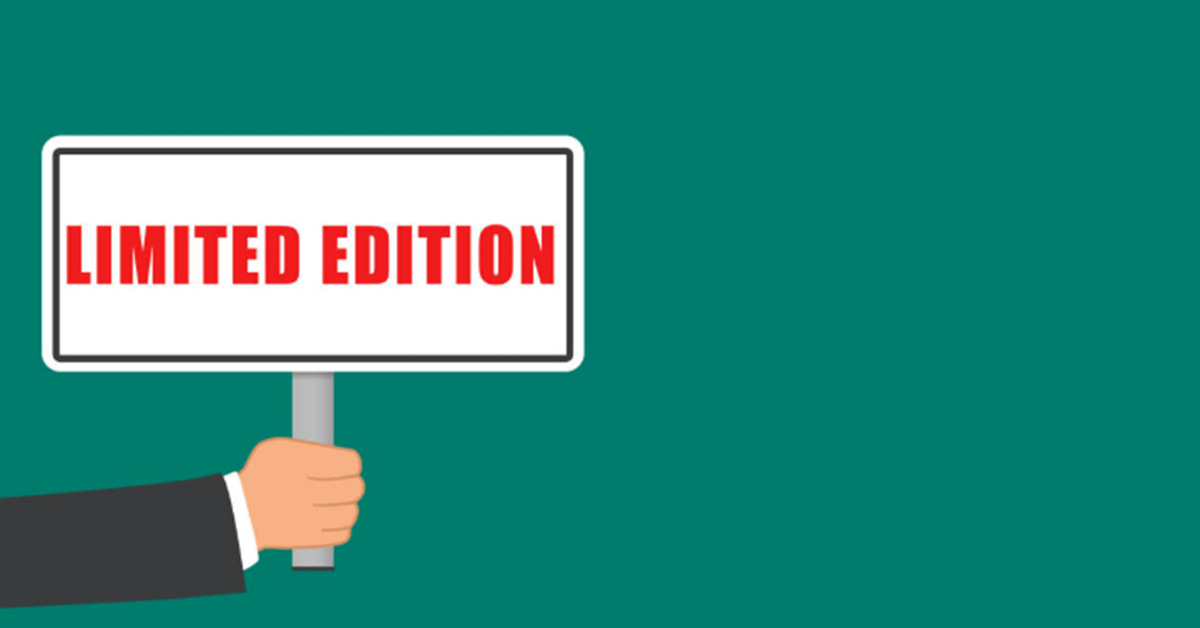Why Does Scarcity Appeal To Us?
How did a mysterious startup with no product rock Twitter? With simple marketing psychology.
Late last week, a new product caught Silicon Valley by storm.
It started off with people posting this emoji - 👁👄👁 - on Twitter. Slowly, a landing page rolled out, followed by a fervent curiosity. “It is what it is” - the slogan associated with the product - began to trend on Twitter. People wanted invites. Early adopters and venture capitalists sought to cement their legacy, jump first in line for the newest trend of consumer social.
There was only one problem: The product didn’t exist.
The campaign was the brainchild of around 60 young people in tech - a campaign that led to almost 50,000 people added their emails to the waitlist. The group raised money, all eventually directed towards marginalized groups, once people realized there was nothing to pay for.
A Business Insider article gathered more details about the campaign itself:
It started as a joke and critique of Silicon Valley's obsession with exclusive, invite-only apps like Hey and Clubhouse, and how the mostly white tech industry can ignore "real needs faced by marginalized people," the statement said. The group, mostly young people of color in tech, said it used that exclusivity and secrecy to manufacture the kind of hype it knew would capture Silicon Valley.
While there are certainly elements of the campaign and their association with movements that deserve their own conversation, the consumer marketing side was fascinating to me.
From a psychological perspective, the group used a tactic that’s very common in Marketing: Scarcity Messaging. Simply put, humans place a higher value on an object that is scarce, and a lower value on those that are in abundance. The scarcity heuristic is a mental shortcut that places a value on an item based on how difficult it is for that item to be attained.
According to psychologist Robert Cialdini - the scarcity heuristic causes us to make biased decisions on a daily basis. It also exists on multiple dimensions:
Exclusivity: Pricing a product so high or making it so hard to get that it becomes exclusive. Think Apple with the newest line of phones. Using copy like “exclusive” or “join the club!”
Rarity: Making only one or two pieces of an item to increase inherent value. Think the Honus Wagner baseball cards or the one copy of the Wu-Tang Clan’s album. Using copy like “rare” or “limited edition!”
Urgency: Putting a timeline on an offer - think Black Friday. Pretty much don’t need to think of anything else.
Excess Demand: When the simple demand of an object becomes too high. The rationale that if many people buy an item, it’s probably the right thing to do.
The tricky part about the scarcity biases is that it’s all based on past buying behaviors - if we’ve bought a great product on an urgent timeline, bought an exclusive product, or a rare product, we’ve gotten the reward that comes with it: to express status. To increase our perceived value. To fill the need to be unique.
Over time, we move away from caring about the actual product - the utility, the functions, the details - we just want the reward. The dopamine hit thats come with status.
I like to call the 👁👄👁 a good example of “mystery-as-marketing” - where the success of your campaign depends on the effectiveness of the scarcity bias. In this case, many of the people who wanted to get on the inside were perhaps users of Clubhouse or Superhuman - the people that already tasted the promised land of exclusivity were not going to miss out.
The best part is that they manufactured the scarcity - even with no product, they were able to leverage our desire for rarity, exclusivity, and social proof. (Full caveat - you can only do it for so long before a bad product will come out to bite you. See the “Will Ferrell Effect” in Quick Links.)
Here’s another perspective outside of tech: Take author Shea Serrano, who is currently selling the PDF of a book that has no title and no description.
Almost thousands in pre-orders.
Sure, many are fans of Shea’s writing - but many also succumb to our human fatal flaw: the desire to be the one in on the joke before everyone else.
Now, if you’ll excuse me, I have a book to pre-order.






Interesting reading, thanks!
A question, how much is "Almost thousands in pre-orders."? A range between 1700$-1900$? I'm confused by that.